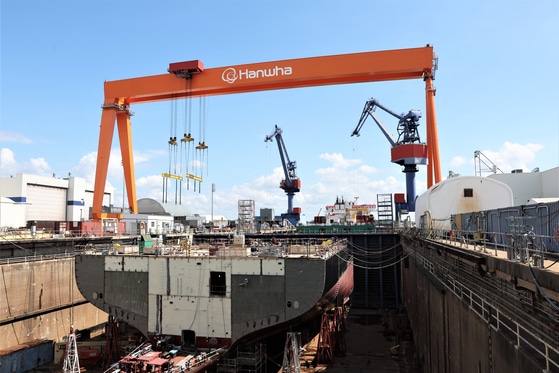Korea and U.S. finalize $150 billion shipbuilding cooperation package ahead of August deadline
Korea and U.S. Forge $150 Billion Shipbuilding Pact

In a significant development for the shipbuilding industry, South Korea and the United States have finalized a tariff agreement that includes a $150 billion investment package aimed at revitalizing U.S. shipbuilding. Announced by South Korean Finance Minister Koo Yun-cheol, this deal comes just ahead of the August 1 deadline and is expected to enhance cooperation between the two nations in the maritime sector. The agreement also includes a reduction in reciprocal tariffs from 25% to 15% as part of a broader $350 billion investment commitment from Korea.
Details of the MASGA Project
The centerpiece of the agreement is the Make American Shipbuilding Great Again (MASGA) project, which is set to transform the U.S. shipbuilding landscape. Minister Koo highlighted that the initiative will not only involve the construction of new shipyards but also focus on workforce training and the maintenance and repair of vessels. This comprehensive approach aims to bolster the U.S. maritime industry, which has struggled in recent years.
U.S. President Donald Trump emphasized the urgency of accelerating shipbuilding efforts during a briefing with Koo. The financial package is designed to mirror a previous $550 billion investment fund established between Japan and the United States, with Koo noting that the scale of Korea’s commitment is significant given the size of its economy compared to Japan’s. The $150 billion allocated for shipbuilding is more than double the combined market capitalization of Korea’s three largest shipbuilders: HD Hyundai Heavy Industries, Hanwha Ocean, and Samsung Heavy Industries.
While Korea proposed expanding the shipbuilding fund, U.S. officials expressed hesitance, citing a lack of viable investment opportunities. The funds are expected to be directed towards acquiring U.S. shipbuilders, providing financing guarantees for vessels ordered at U.S. shipyards, and investing in advanced maritime technologies, including infrastructure and autonomous ships. Public financial institutions like the Export-Import Bank of Korea are anticipated to play a crucial role in facilitating these investments.
Trump Says Canada, Mexico Tariffs on Schedule despite Border, Fentanyl Efforts
Market Reactions and Future Considerations
The announcement of the tariff agreement has already had a positive impact on the stock market, with shares of Korean shipbuilders experiencing significant gains. Hanwha Ocean’s stock surged by 13.43%, while HD Hyundai Heavy Industries and Samsung Heavy Industries saw increases of 4.14% and 0.47%, respectively. This optimism reflects investor confidence in the potential growth of the U.S. shipbuilding sector fueled by Korean investment.
Despite the promising outlook, experts caution that the U.S. shipbuilding industry accounted for only 0.5% of global ship orders last year. Rhee Shin-hyung, a naval architecture professor at Seoul National University, noted that while Korean investment and technology could help rebuild the U.S. shipbuilding industry, the sustainability of future orders remains uncertain. He advocates for a cautious, step-by-step investment strategy rather than aggressive upfront commitments.
